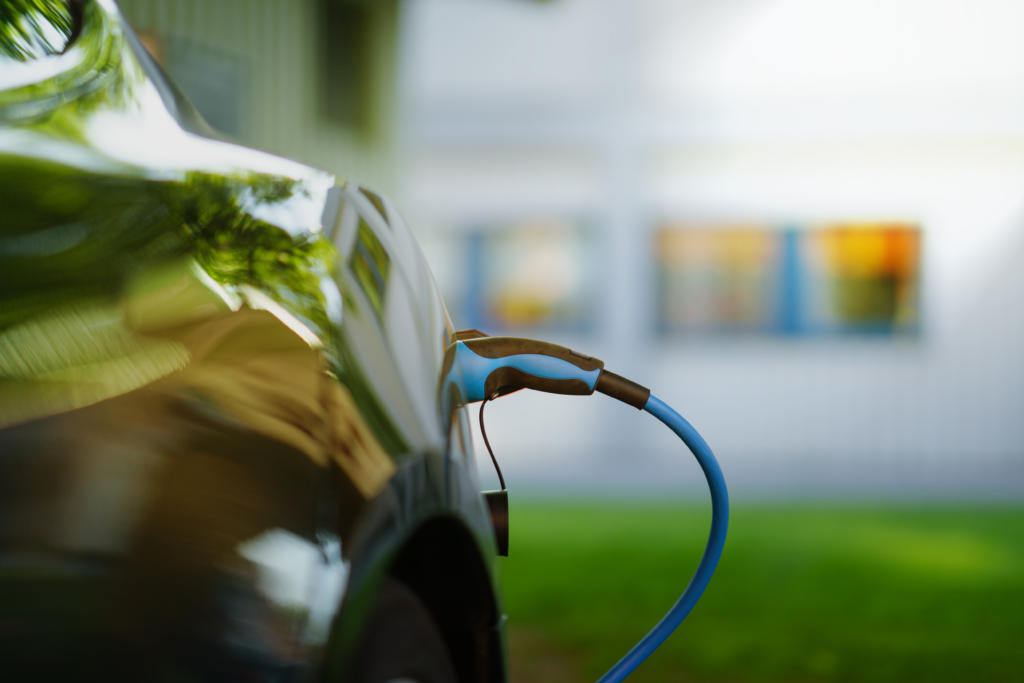
Under new government amendments to the Building Regulations all new build homes in England must have access to an electric vehicle (EV) charge point. The new legislation is one of the steps in achieving England’s net zero emission aim by 2050.
Building regulations part S
As of June 2022, the Building Regulations Part S means that all new homes with a dedicated parking space must be built with an EV charge point creating an easier, cheaper and more convenient way of charging for EV owners. This is consistent with a poll of AA members who said that installing EV charging points on new-build homes would be the best way to encourage motorists to make the switch from petrol or diesel to electric. These amendments are intended to support and encourage the uptake of EV purchases in the UK, improve the experience of owning an electric vehicle and ultimately support the climate change agenda.
The new Building Regulations applies for any new residential or non-residential buildings which have an associated parking space. The regulations also apply to any buildings undergoing a material change of use to a dwelling, or any buildings undergoing major renovation. Any new build residential houses without off street parking will be exempt from the new Regulations.
The regulations include a price cap of £3600 or less per charging point for new build residential properties only. This has been introduced to avoid the installation costs becoming too expensive for new build developers to include in their costs. It is also noted in the regulations that where it is not possible to install a charge point for less than the price cap, only cable routes for the charge points must be installed in the parking space where the charge points would have otherwise been.
Within Part S there are minimum standards that the electric vehicle charge point must meet. The minimum power supply that the new EV charge points must have is 7kW; if only cable routes are to be installed, these must also be ready to supply 7kW for the future charge point that may be fitted. The charge points must be compatible with all vehicles and therefore must have a universal socket.
Self-build circumstances
In self-build circumstances, the regulation is loosened to include a tethered vehicle charge point if the vehicle requirements are already known. A tethered EV charge point is a cable which is permanently fixed to the EV station and will charge only a specific vehicle. However, an untethered charge point will be the most practical for changing cars or selling property.
Hand in hand with the new Building Regulations, the Electric Vehicles (Smart Charge Points) Regulations 2021 came into force in June 2022. This law affects the charge units themselves rather than installation. The law ensures that all new charge units are configured with smart technology and WiFi meaning that an EV would charge at different times of the day in response to signals such as electricity tariff information. This will relieve stress on the National Grid and allow the existing infrastructure to handle the large amount of energy required for EV charging, also encouraging off-peak charging, and helping to keep costs down for consumers.
How we can help
The electric vehicle (EV) and alternative fuels market is gathering pace, and EVs are an increasingly viable option for individuals and business fleets. While there remain some barriers to full implementation of EV use, such as lack of charging infrastructure and its interoperability, the market continues to grow every year.
Fleet owners or vehicle retailers
If you’re a fleet owner or motor vehicle retailer, you’ll want to ensure you’re ahead of the game as the market changes. We can advise on the legal impact of such changes – whether this relates to vehicle leases, data protection, employment rights, property rights, or protecting your business with a view to succession.
Developers
We can assist in securing the necessary property rights, grid connection agreements and power purchase agreements to support the roll out of your network of charging points.
Protecting your designs for the future of EVs and alternative fuels
Do you have a bright idea that could shape EVs or their charging systems? Are you a designer of vehicles or component parts such as motors, drive systems or electronics? If so, it is important you protect your designs and systems to ensure they’re not infringed by competitors. We understand the EV world is fast-moving, and can act quickly to protect your interests and intellectual property, and provide expert legal support if infringements do occur.
Supporting your role in accommodating infrastructural changes
EVs will change how we design our housing, workspaces, open spaces, town centres and road networks. Whether you’re a business owner, local authority or community group, our dedicated Energy team can help you be part of the EV and alternative fuels revolution.
Get in touch to discuss how we can help or alternatively drop into the offices and utilise our on-site EV charging points. Our Energy Team can help you.
